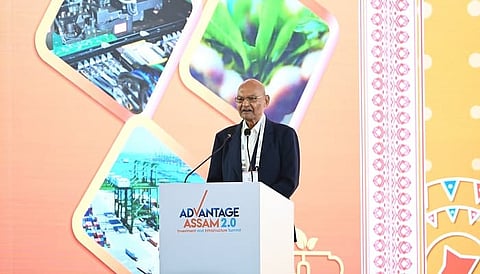

New Delhi: Vedanta Group Chairman Anil Agarwal flagged India’s dependence on imported crude oil as a major strategic vulnerability amid ongoing tensions in the Middle East, and urged faster clearances to accelerate domestic oil and gas production. “Uncertainty and conflict in the Middle East is a sure trigger for global oil prices,” Agarwal said in a post on X (formerly Twitter) on Tuesday.
“For India, which imports around 90 percent of its requirements, including 40 percent from the Middle Eastern countries, this becomes a challenge,” he said.
“We can change this permanently. Let us put all our energies into raising domestic production,” he added. “We have tremendous reserves. We have best-in-the-world policies. Government has done a lot of work. Allowing more and more self-certification of clearances can lend the much required speed.”
Brent crude futures were trading around USD 70 per barrel on Tuesday, down nearly 4 percent from levels seen late last week. The decline follows diplomatic signals of de-escalation between Iran and Israel, after over a week of heightened military and geopolitical tension that had pushed oil to above USD 76 per barrel.
There has been no reported disruption in crude supplies from the region so far. However, shipping costs have risen due to increased war-risk premiums for tankers crossing the Strait of Hormuz — the narrow Gulf chokepoint through which roughly a fifth of the world’s seaborne oil passes.
In a bid to hedge against regional risks and rising transport costs, India has increased crude oil purchases from Russia and the United States, according to commodity intelligence firm Kpler. Middle Eastern producers such as Iraq and Saudi Arabia remain key suppliers, but the share of Russian and U.S. cargoes has risen in recent weeks.
India, which imports about 85–90 percent of its crude oil, sources approximately 40 percent of that volume via the Strait of Hormuz. Analysts say any escalation in conflict that disrupts movement through the strait would have a direct impact on India’s energy security and import bill.
Agarwal’s remarks reflect a broader industry demand for easing bureaucratic hurdles in exploration and production (E&P) activities. While the government has introduced several reforms — including the Open Acreage Licensing Policy (OALP), revenue-sharing contracts and the Oilfields (Regulation and Development) Amendment Act, 2024 — domestic crude production has remained largely flat over the past decade.
